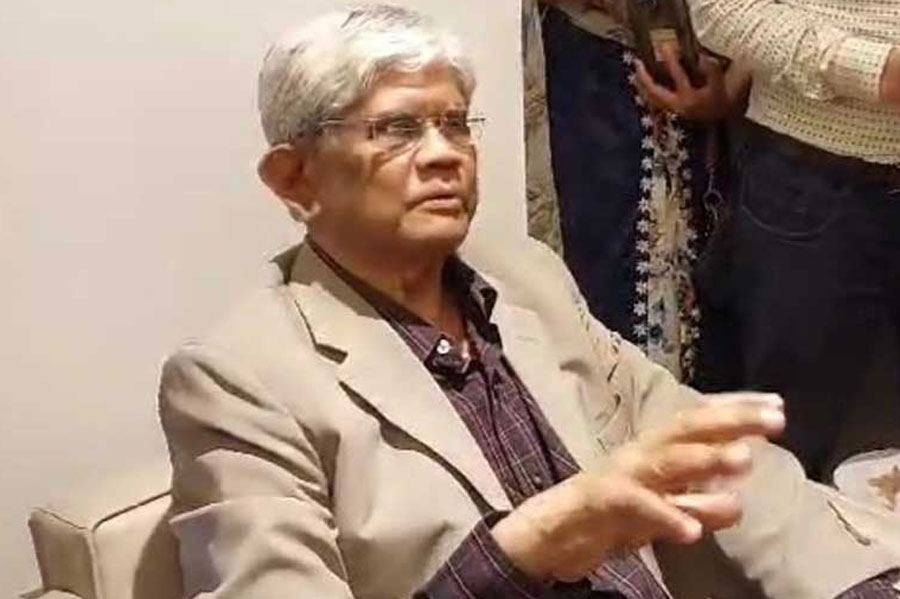'Launderers smarter than govt officials or bankers'
Says Finance Adviser Dr Salehuddin

Published :
Updated :

Finance Adviser Dr Salehuddin Ahmed has said money launderers in Bangladesh are far smarter than the government, often outwitting bankers and even central bank officials.
"Companies often shift money from one place to another repeatedly before it leaves the country. That is how money laundering occurs," he said while speaking as the chief guest at a seminar on financial transparency in the corporate sector, organised by the Economic Reporters' Forum (ERF) on Monday.
Despite facing criticism at home, the finance adviser says Bangladesh continues to enjoy a strong reputation internationally.
"While some challenges remain, the country is performing well on the macroeconomic front. Money laundering has slowed, and foreign exchange reserves are on the rise," he added.
The seminar, marking the formal inauguration of the academic activities of the newly launched ERF Institute, held at the ERF office in Dhaka, also hosted the signing of a Memorandum of Understanding (MoU) between the Institute of Chartered Accountants of Bangladesh (ICAB) and ERF to support training and capacity-building initiatives.
Finance Secretary Khairuzzaman Mozumder, Financial Reporting Council (FRC) Chairman Dr Md Sajjad Hossain Bhuiyan, and ICAB President NKA Mobin spoke at the event, which was presided over by ERF President Doulot Akter Mala.
Dr Salehuddin said the current government has not looted money. Banks are more stable, foreign exchange reserves have risen, and international donors view Bangladesh positively. Many express optimism about the country's progress, he added, while also expressing satisfaction with the launch of the ERF Institute.
Finance Secretary Mozumder said the government had provided funding for the institute. "ERF requested more support, and we will try to allocate additional resources in the future. The funds provided are already being used for training," he noted. Md Sajjad Hossain Bhuiyan says the FRC is working with nearly 6,000 institutions, including government autonomous bodies and large private corporations.
He noted that while such councils are highly effective worldwide, the FRC - established in 2017 - is yet to achieve full operational capacity in Bangladesh.
"The FRC has been entrusted with improving the quality of accounting and auditing practices. Wherever there is a flaw in the accounting system, the FRC will intervene," Mr Bhuiyan said, adding that such interventions often make powerful institutions unhappy because their financial interests are challenged.
He emphasised that an audit report is the first document of financial discipline and said those who obstruct proper audits must be countered, while lenient auditors must be replaced.
He also cautioned against businesses avoiding taxes, manipulating share prices, or inflating asset values by withholding full financial disclosures.
"If financial statements are complete, share prices will neither skyrocket without basis nor collapse suddenly. Manipulation harms investors," he said, adding, "If a bank lends Tk 90 against an asset falsely valued at Tk 100, when it is actually worth only Tk 1, how will the bank recover the loan?"
ICAB CEO Shubhashish Bose also highlighted systemic issues, including companies issuing multiple audit reports for different purposes - one for bank loans, another for tax filings.
He stressed that audit reports should be unique, and the lack of independent directors undermines transparency.
Mr Bose also suggested that the roles of chairman and managing director should be separated, while the Bangladesh Securities and Exchange Commission enforces stricter regulations for listed companies.
jahid.rn@gmail.com


 For all latest news, follow The Financial Express Google News channel.
For all latest news, follow The Financial Express Google News channel.